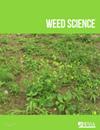杂草科学教育的全球视角
IF 2.1
2区 农林科学
Q2 AGRONOMY
引用次数: 0
摘要
在现代农业中,由于入侵性、除草剂抗性的增加和对高投入方法的重视,杂草问题预计会恶化并变得更加复杂。杂草造成的巨大经济损失在全球范围内从1亿美元到260亿美元不等。过去,杂草科学知识通过有效、价格合理和安全的技术取得了成功;特别是合成除草剂,能有效控制农业生态系统中的杂草。杂草科学被大多数大学的农业教学、研究和/或推广项目所接受和采用。在全球范围内,提供农业教育的所有大学中,约有7%指定了杂草科学部门,专注于杂草生物学、生态学和杂草管理。一些大学还提供杂草科学学位课程,或者至少是与植物保护、农学和生态学等相关学科相关的学位课程。尽管在杂草科学方面已经取得了实质性的进步,比如一个独立的杂草科学学科,专门的期刊和专门的杂草科学学会以及世界范围内杂草科学学科的会议,但仍然存在许多限制(例如,缺乏训练有素的杂草科学家)和采用新的杂草科学技术的障碍。杂草科学研究的现代化进程缓慢和经费不足阻碍了杂草科学的发展。杂草科学学科的新课程应侧重于生物化学、进化生物学、分子生物学和遗传学在杂草科学研究中的作用。本文章由计算机程序翻译,如有差异,请以英文原文为准。
A global perspective of education in weed science
In modern agriculture, weed problems are predicted to worsen and become more complicated as a result of increasing invasiveness, herbicide resistance, and increased emphasis on high-input methods. Weeds cause huge economic yield losses that range from $100 million to $26 billion globally. The knowledge of weed science has offered success in the past through effective, reasonably priced, and secure technologies; specifically synthetic herbicides to effectively control weeds in agroecosystems. Weed science is accepted and adopted by most universities with teaching, research, and/or extension programs in agriculture. Globally, approximately 7% of all the universities offering agriculture education have specified weed science departments focusing on weed biology, ecology and weed management. Some universities also offer weed science degree programs or at least certain courses in their degrees related to associated disciplines such as plant protection, agronomy and ecology. Although substantial advancements have been made in weed science, such as a separate weed science discipline, specialized journals and specific weed science societies and conferences in weed science discipline worldwide, still, there are lots of constraints (for example, lack of trained weed scientists) and barriers to adoption of new weed-science technologies. Slow modernization in weed science research and low funding has slowed the progress of weed science. New curricula in the weed science discipline should focus on the role of biochemistry, evolutionary biology, molecular biology and genetics in weed science research.
求助全文
通过发布文献求助,成功后即可免费获取论文全文。
去求助
来源期刊

Weed Science
农林科学-农艺学
CiteScore
4.60
自引率
12.00%
发文量
64
审稿时长
12-24 weeks
期刊介绍:
Weed Science publishes original research and scholarship in the form of peer-reviewed articles focused on fundamental research directly related to all aspects of weed science in agricultural systems. Topics for Weed Science include:
- the biology and ecology of weeds in agricultural, forestry, aquatic, turf, recreational, rights-of-way and other settings, genetics of weeds
- herbicide resistance, chemistry, biochemistry, physiology and molecular action of herbicides and plant growth regulators used to manage undesirable vegetation
- ecology of cropping and other agricultural systems as they relate to weed management
- biological and ecological aspects of weed control tools including biological agents, and herbicide resistant crops
- effect of weed management on soil, air and water.
 求助内容:
求助内容: 应助结果提醒方式:
应助结果提醒方式:


